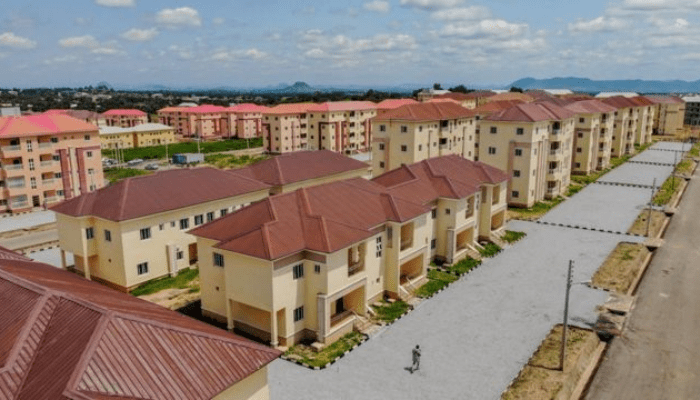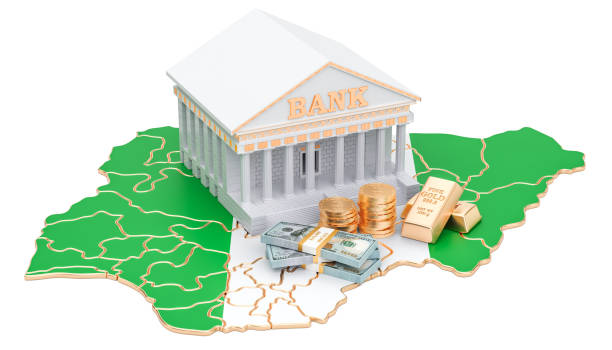The Lagos real estate market has been significantly impacted by Nigeria’s ongoing economic challenges, leading to a decline in commercial development activity.
According to the 2024 Lagos Real Estate Development Pipeline Report by Estate Intel, a real estate research and data company, development activity in Lagos State decreased by 11% year-on-year.
Join our WhatsApp ChannelThe report attributes this decline to high inflation and a weakening currency, which have made it difficult for developers and investors to commit to new projects.
Dapo Runsewe, a Senior Analyst at Estate Intel, commented on the situation, stating, “The Lagos office market is fully bracing macroeconomic headwinds as rents have been subdued amid concessions to maintain occupancies.
However, as companies opt to downsize or exit the market altogether, occupancy rates are being impacted.” He noted that even major companies like Microsoft and Meta have reduced their office space in Lagos, reflecting the broader economic pressures.
Real Estate Segments Struggle but Show Potential
The report highlights that different segments of the real estate market in Lagos have been affected differently.
The office sector recorded a slight increase in its development pipeline, now accounting for 16.25% of total stock compared to 14% in 2022.
However, as 13% of the pipeline nears completion, this influx of new space is expected to impact occupancy rates, particularly in prime areas like Ikoyi and Victoria Island, which are expected to receive 75% of the new supply by 2025.
On the other hand, the retail sector remains subdued, with most development activity driven by hypermarkets and neighborhood supermarkets.
Larger retail developments, which make up 70% of the pipeline, are currently on hold. Notably, the 30,000m2 Orca Mall is the only project over 10,000m2 that is actively under construction, making it the first of its size to be undertaken in two years.
READ ALSO: Rice Palliatives: Does It Really Help The Poor?
“As macro conditions continue to erode consumers’ purchasing power, formal retail malls have stayed resilient and maintained healthy occupancy rates at an average of 86% as of Q1 2024,” Runsewe said. “However, we’re seeing increasingly reduced footfalls in the malls outside of the festive season.”
Hospitality and Industrial Sectors Shine
Despite the challenges, the hospitality sector has emerged as the best-performing segment in Lagos’ real estate market.
The report indicates a 35% increase in the Average Daily Rate (ADR) for hotels compared to 2022. The hospitality sector’s pipeline grew to 38% of total stock, and the outlook remains positive due to limited supply and high demand.
Trevor Ward from W Hospitality praised the sector’s performance, stating, “The recovery and resilience of the Lagos hotel market is remarkable. It has outperformed most other cities globally, in terms of both demand and pricing.”
Ward noted that by the end of 2022, both ADR and Revenue Per Available Room (RevPAR) had surpassed pre-pandemic levels, and 2023 ADR was about 35% above the 2022 figure.
The industrial sector also presents a promising outlook, driven by domestic demand. Despite recent exits by multinational companies, local demand continues to sustain transaction activity.
Data centres, in particular, have seen high levels of investor interest, with supply expected to reach 200MW by 2025.
Residential Sector Faces Challenges, Offers Opportunities
The residential real estate sector in Lagos continues to experience high demand, particularly in the low to middle-income segments.
However, the existing pipeline, estimated at 33,000 units, falls far short of addressing Lagos’ housing deficit, which is estimated at 2.3 million units.
The government’s efforts to undertake mass housing projects are seen as a critical step towards addressing this deficit.
Runsewe emphasized the opportunities in this sector, saying, “As the new government administration works to meet the housing demand, opportunities exist for private developers to collaborate, similar to the Police Housing Scheme. In addition, informal retail presents an enticing investment opportunity as seen with the growth of chains like Prince Ebeano Supermarket and Bokku! Mart across the State.”
While Lagos’ real estate market faces significant challenges due to economic pressures, there are still opportunities for growth in specific sectors.
The hospitality and industrial sectors show strong potential, while the residential market continues to offer opportunities for developers willing to address the housing shortfall.
Emmanuel Ochayi is a journalist. He is a graduate of the University of Lagos, School of first choice and the nations pride. Emmanuel is keen on exploring writing angles in different areas, including Business, climate change, politics, Education, and others.
- Emmanuel Ochayihttps://www.primebusiness.africa/author/ochayi/
- Emmanuel Ochayihttps://www.primebusiness.africa/author/ochayi/
- Emmanuel Ochayihttps://www.primebusiness.africa/author/ochayi/
- Emmanuel Ochayihttps://www.primebusiness.africa/author/ochayi/


















Follow Us